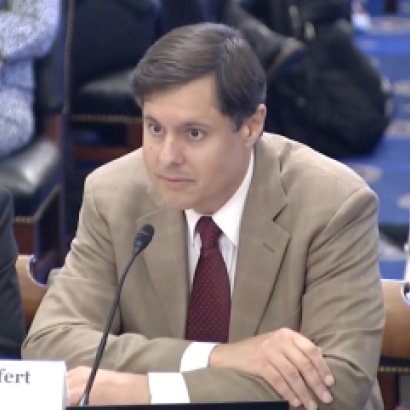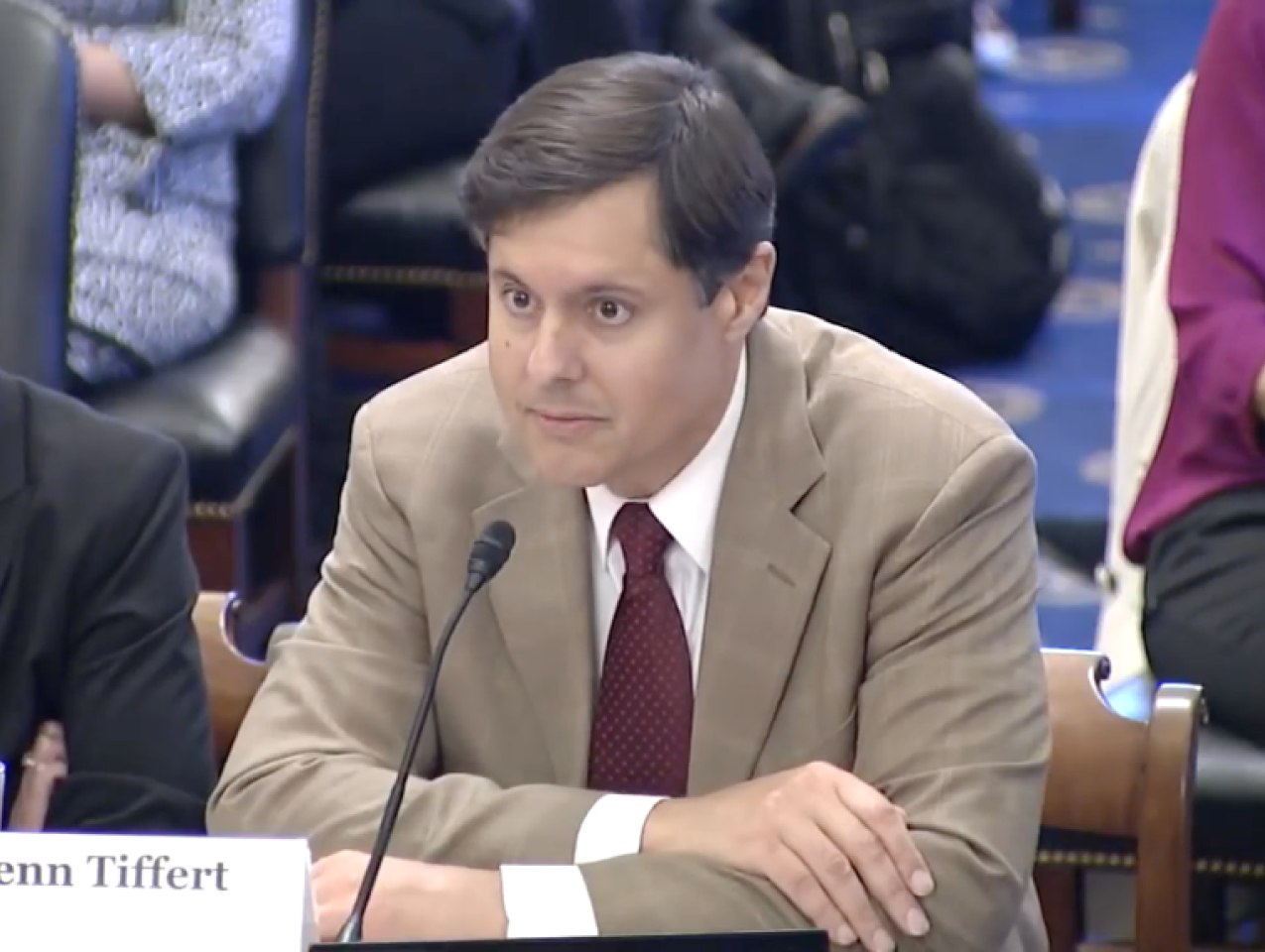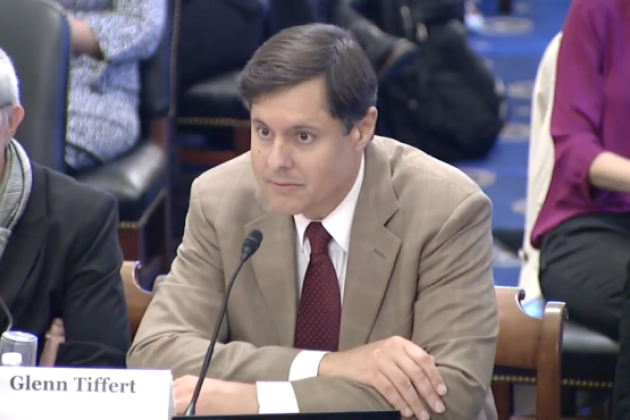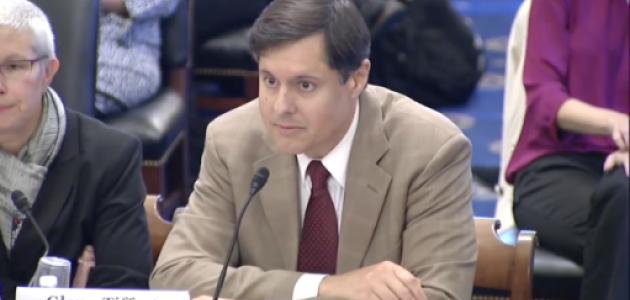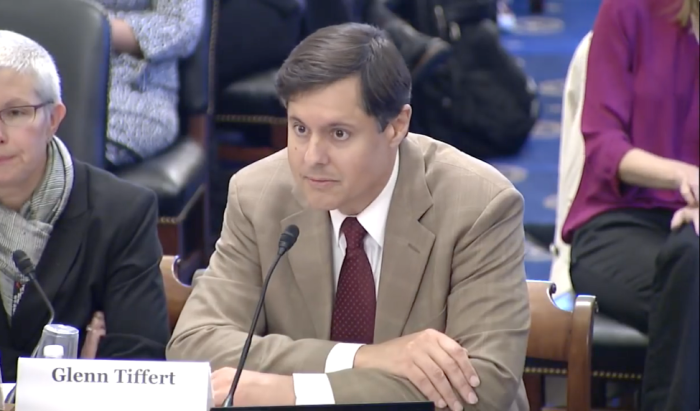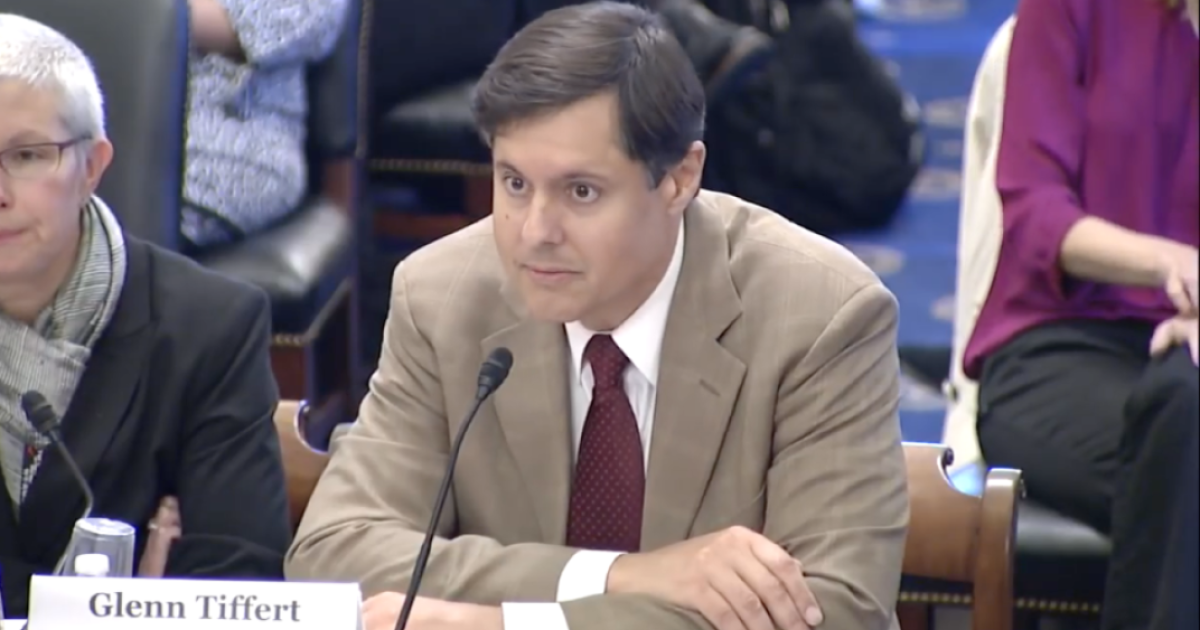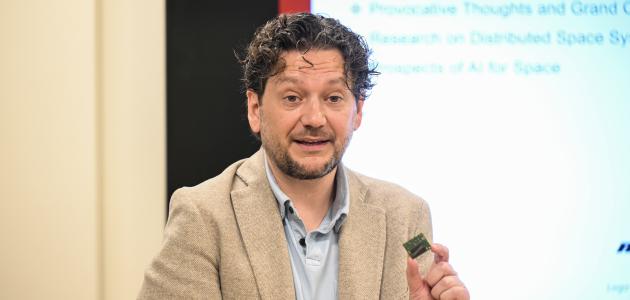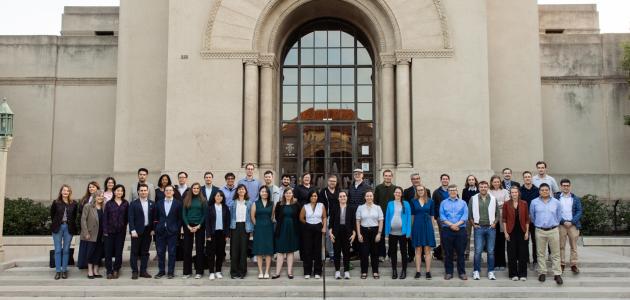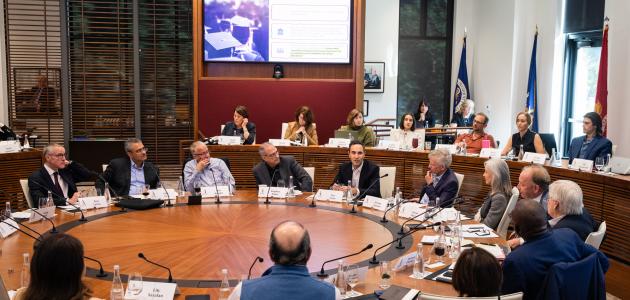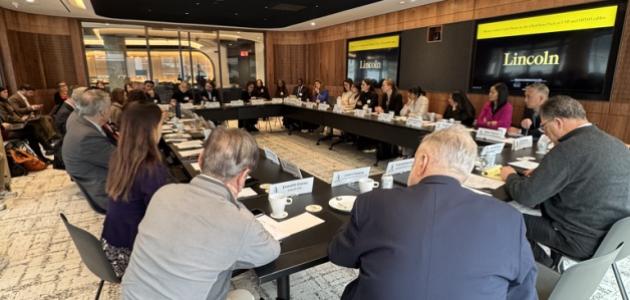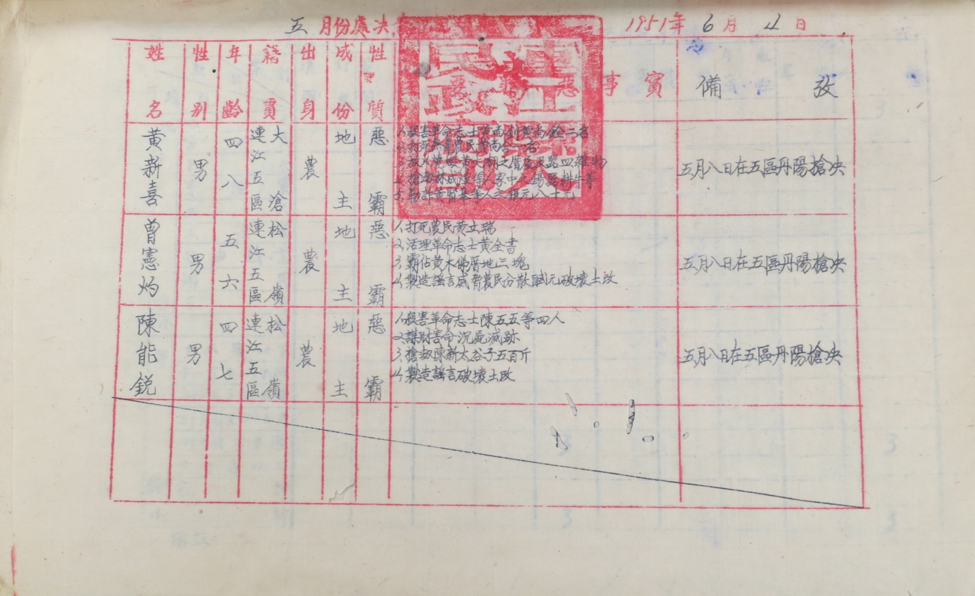
Glenn Tiffert, a Visiting Fellow, is among a new breed of historians who are marshalling digital technologies and the tools of data science to probe the past. A specialist on twentieth-century China, he received his Ph.D. from the University of California, Berkeley, and taught at the University of Michigan before arriving at the Hoover Institution, where he is advising the Library and Archives on digital preservation, studying Chinese censorship and influence operations, and finalizing a book manuscript on the birth of the PRC legal system.
Glenn’s association with the Hoover Institution began as a graduate student, when he was a frequent visitor to the Library and Archives. He later returned as a participant in the summer workshops on authoritarian regimes, and on modern Chinese history. Over the years, the Library and Archives have been invaluable to his research, but never more than now, he says, as the climate for inquiry and free expression in China grows more challenging.
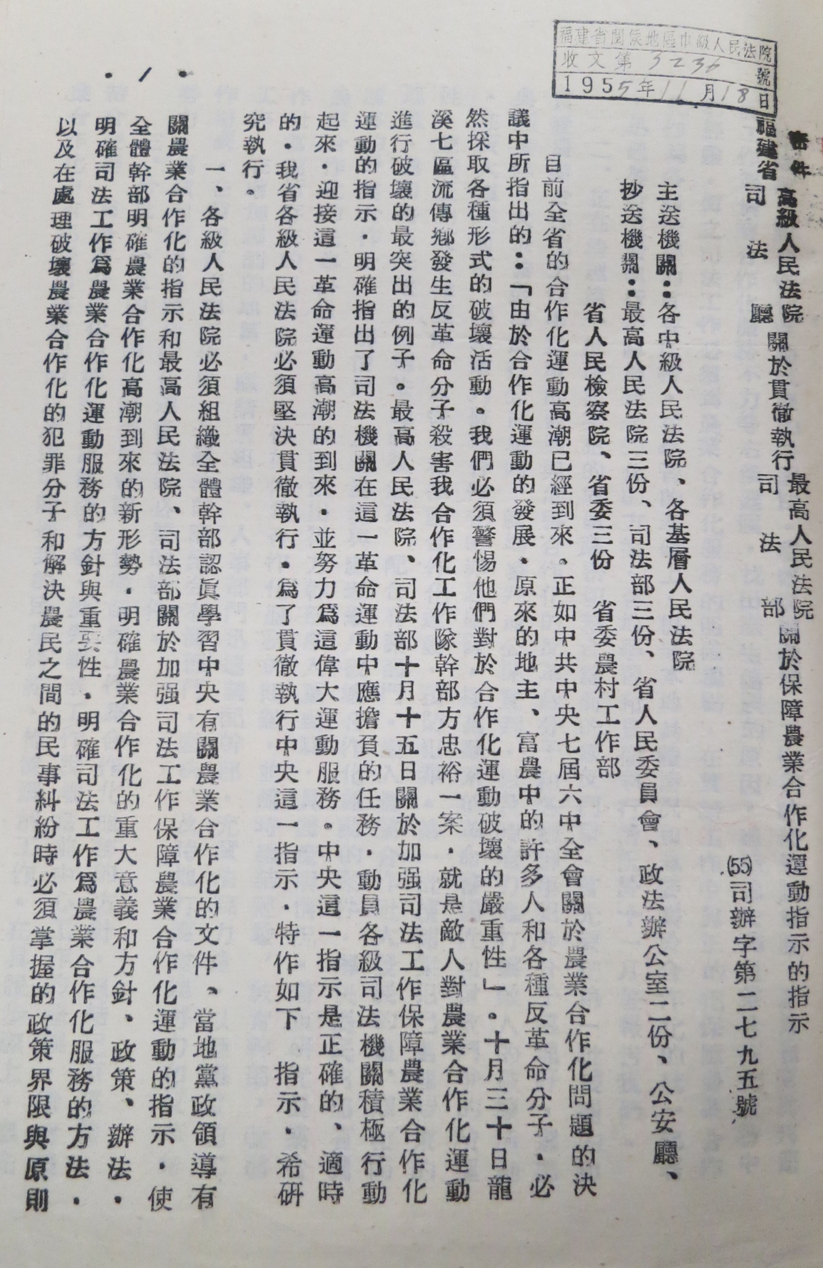
Glenn’s research revolves around China’s transformation from a traditional empire to a Leninist party-state, and the imprint that journey has left on the present. Much of his scholarship has centered on legal history, including publications on Chinese constitutionalism, the construction of a modern judiciary, and the suppressed genealogy of the rule of law in the PRC.
His forthcoming book, entitled Judging Revolution, grows out of this body of work. Based on materials from the Hoover Archives and on internal documents that Chinese authorities have since closed to scholars, it tells the inside story of the people who built the courts of revolutionary Beijing, and the fierce ideological and political struggles they waged over what a socialist legal system should look like and do. Via the first deep empirical dive into the takeover of an organ of the Chinese state by the communist party, the book radically re-interprets the 1949 revolution and the relationship of the early PRC to points forward and backward in time, and it speaks directly to why legal and political reform in China today has defied predictions of inexorable liberalization. Indeed, for those who look forward to a future beyond the Chinese Communist Party, Glenn’s findings caution that the structures of political power and practice that we presently observe in China run deeper than the ruling party, and will very likely outlast it.
Since arriving at the Hoover Institution, Glenn has increasingly shifted his energies to policy work, and is applying his background in Chinese history to problems of contemporary urgency. He is at the forefront of research into the Orwellian synergies between technology and authoritarianism, and is deeply engaged in the emerging discussion about Chinese influence operations in the United States. His latest project at Hoover unmasks how China is leveraging its market power and the instruments of the information age to export its domestic censorship regime abroad (see “Turning Scholars into Unpersons” pp. 107-114 in the July 2018 edition of the Hoover Digest). As part of that project, he is developing machine learning tools to analyze how Chinese censors are silently manipulating the online sources of information upon which we increasingly rely in order to reshape our knowledge base to favor their narratives. On one level, his findings have exposed a hidden pathway through which China wields sharp power around the world, but more than that they have also added new dimensions to the belated recognition that our deepening digital dependence can destabilize truth and imperil the trust necessary to sustain healthy democratic practice. Glenn’s work on these subjects has attracted coverage in the Washington Post and Foreign Affairs, and he has testified before Congress, and advised the federal government on the nature of these threats and the appropriate responses.
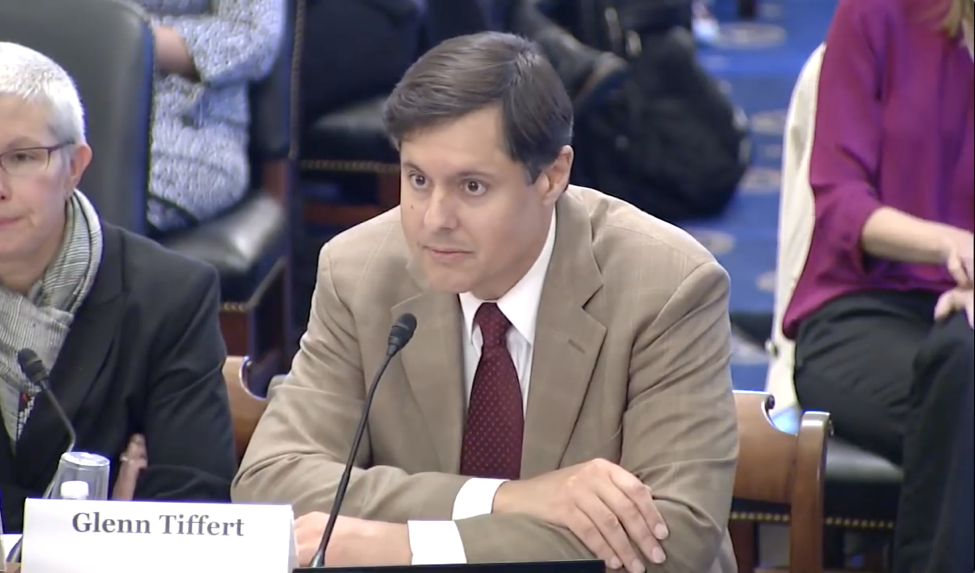
As Glenn sees it, “Hoover fuses intellectual rigor and policy relevance into a rare and potent combination, and the Library and Archives are a pillar of that achievement. Its Chiang Kai-shek diaries, storehouse of Mao-era newspapers, and collections on communist Chinese political movements and Kuomintang Party records are unmatched anywhere. They make Hoover an essential stop for scholars interested in understanding modern China from around the world. What’s more, the reading room and the archivists who staff it are among the best I’ve encountered. This is no small thing. They are truly the unsung heroes behind our work.”
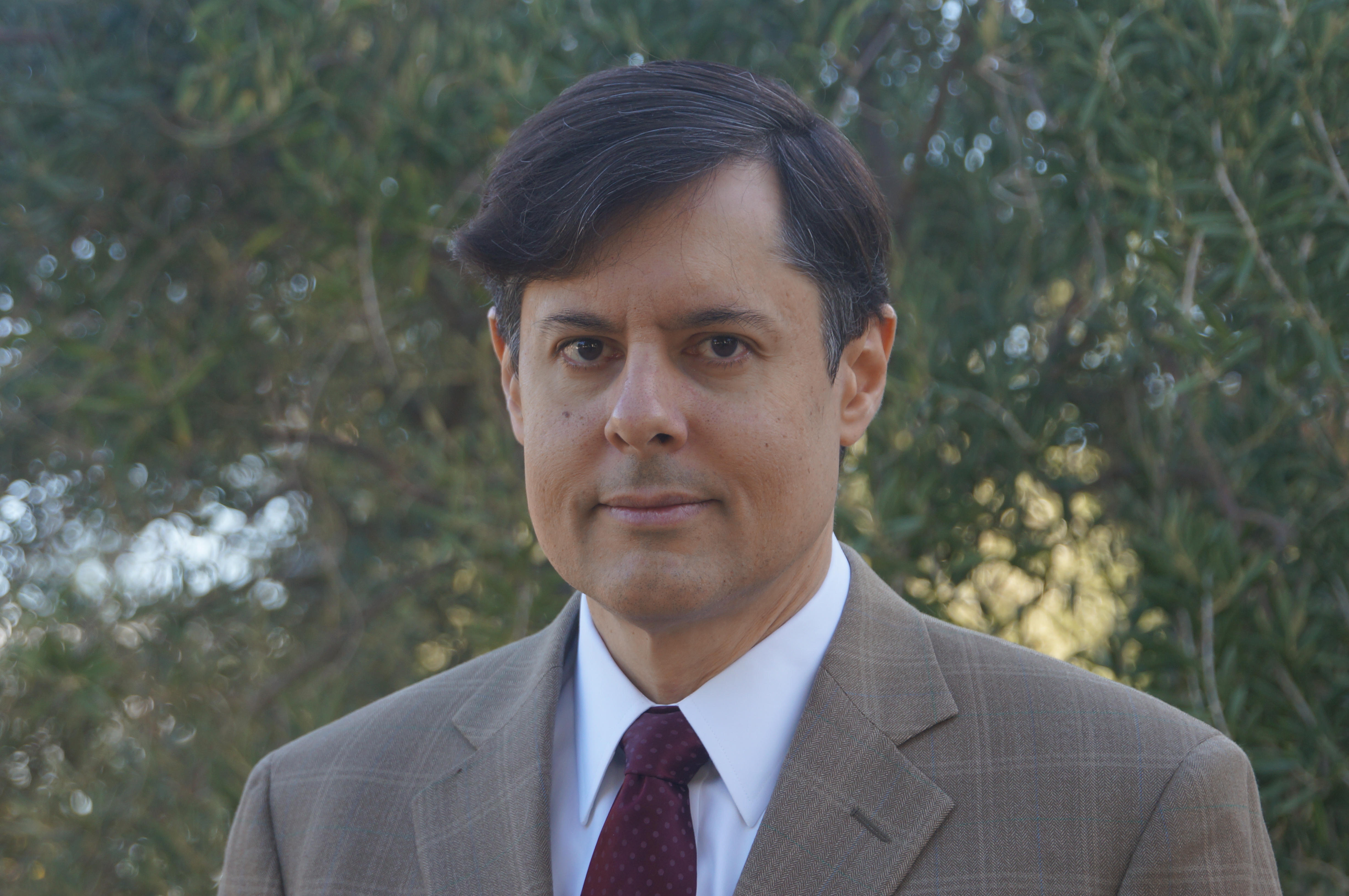 Glenn Tiffert
Glenn Tiffert
Glenn Tiffert, a Visiting Fellow at the Hoover Institution, earned his Ph.D. in History from the University of California, Berkeley. From 2015-2017, he was the Distinguished Postdoctoral Fellow in Residence at the Lieberthal-Rogel Center for Chinese Studies at the University of Michigan, Ann Arbor, where he also held faculty appointments in the History Department and Asian Languages & Cultures Department, and taught undergraduate and graduate courses on modern China.




